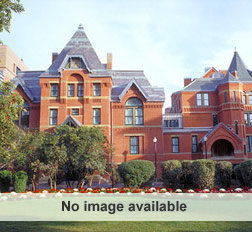School Stats
- Resident Tuition $29,577
- Non - Resident Tuition $50,274
- Application Fee $60
- AVG PCAT 87.0
- AVG GPA 3.5
Crime: Detailed Stats >
Admissions Information
- UW School of Pharmacy Student Services
- 1959 NE Pacific St, Hlth Sci, H362
- Box 357631
- Seattle, WA 98195-7631
- United States
- Phone: 206-543-6100
- Fax: 206-616-2740
- Email: [email protected]
- Website: sop.washington.edu/pharmd
School Overview
University of Washington School of Pharmacy Fast Facts
School Info
For up-to-date and accurate program information, please visit www.sop.washington.edu/pharmd or contact the UW School of Pharmacy directly at [email protected]. Vision We will be the global leader in pharmacy education, research and service, committed to providing a transformative learning experience in a collaborative and diverse environment focused on improving the health and well-being of the communities we serve. Mission Statement Inspiring Education: Develop exceptional, innovative and diverse pharmacy leaders and scientists. Discovering Solutions: Advance the science, development, implementation, and outcomes of safe and appropriate treatments. Serving People and Communities: Promote the health and well-being of the public, locally and globally. Core Values Our mission, vision and strategic plan must reflect the values that define the unique identity and character of our School. Respect, integrity, diversity and community are at the heart of our enterprise. We believe in: A Passion for Discovery and Learning Excellence in Every Endeavor Integration and Synergy of Research and Education The Quality and Breadth of Our Academic Programs An Essential Partnership of Students, Faculty and Staff Cultivating Strong, External Collaborations Embracing Diverse Perspectives, Beliefs and Cultures Celebrating Scholarship, Achievements and Successes Serving for the Greater Good of Society
Curriculum
The Doctor of Pharmacy curriculum provides students with the scientific background and clinical skills to offer patient-centered, team-based care in an evolving health care system. Electives allow students to explore career options and interests. Independent study offers opportunities to learn from faculty at the forefront of research and practice. Students can follow a specialized track of study (in topics such as chemical dependency) or receive certification in biomedical regulatory affairs, clinical research methods or geriatric pharmacy. Faculty from the Departments of Pharmacy, Medicinal Chemistry, and Pharmaceutics as well as from the Pharmaceutical Outcomes Research & Policy Program teach PharmD courses. Students can also take electives from other health sciences disciplines. PharmD students can apply to receive a concurrent PhD degree in Medicinal Chemistry or Pharmaceutics or a joint MS degree in Pharmaceutical Outcomes Research & Policy. They can also pursue certification as a Physician Assistant (PA-C) while earning a concurrent Master of Clinical Health Services degree from the School of Medicine. We offer a diverse range of introductory through advanced pharmacy practice experiences. Our School has more than 500 preceptors at sites throughout the region, nation and world.
Facilities
Washington State has long been one of the most progressive places to practice pharmacy, thanks in part to the efforts of UW faculty, students and alumni. There are collaborative drug therapy agreements in this state that allow pharmacists and pharmacy interns to provide immunizations, tobacco cessation counseling, blood pressure screenings, and clinics for management of pain, diabetes, anticoagulation and other therapies. Pharmacist involvement in such services improves patient health outcomes. PharmD lab sections are taught in the state-of-the-art Bracken Pharmaceutical Care Learning Center. The center, which was renovated in 2012, provides an optimal environment for students and practitioners to learn the technical and clinical skills needed for patient-focused care. The center consists of six integrated learning areas: sterile products and biotechnology preparation room, automated dispensing equipment area, technology-supported learning center, patient education/nonprescription products, patient assessment room, and conference room. The laboratory components of drug information, compounding, dispensing, communications and therapeutics coursework are all offered in the Center, and are supported by state-of-the-art computer, video and telecommunications equipment.


What are your suggestions for the admissions office?